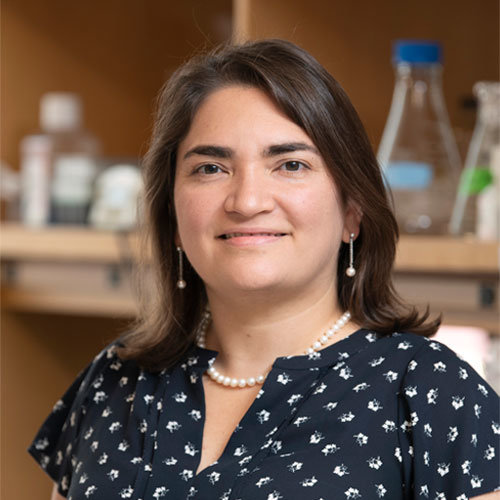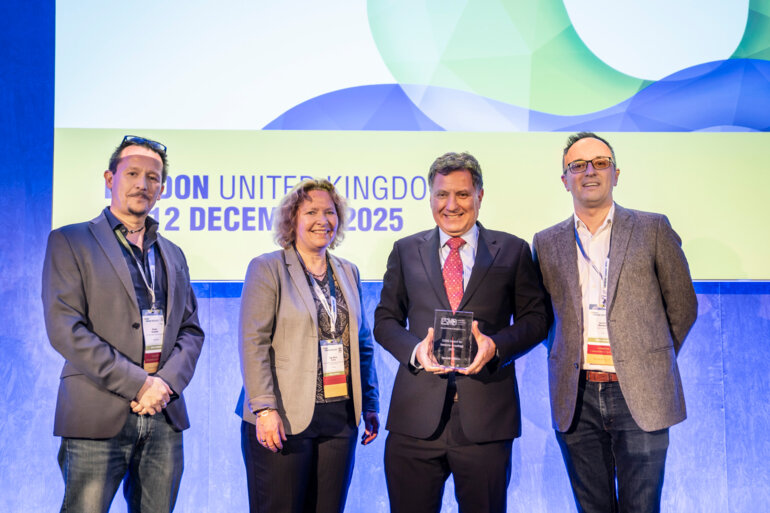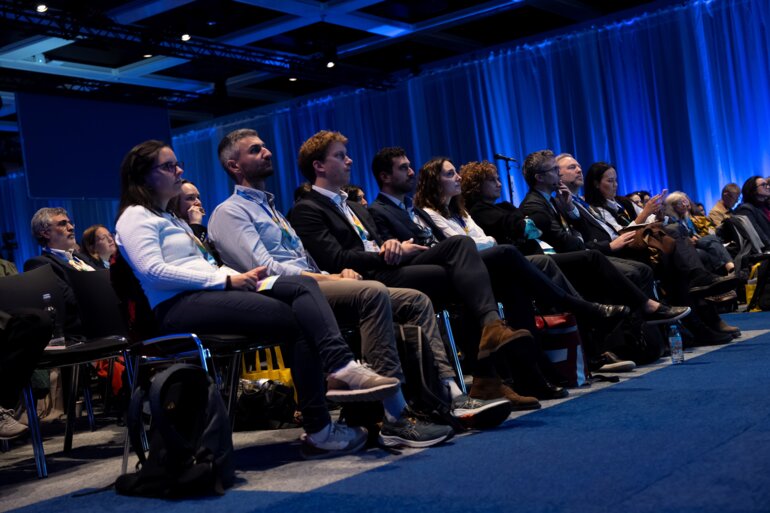The approval by the US FDA in 2014 of blinatumomab – the first bispecific antibody – and in 2017 of tisagenlecleucel – the first chimeric antigen receptor T (CAR-T)-cell therapy – for treatment of acute B-cell lymphoblastic leukaemia marked watershed moments in cancer treatment. Both immunotherapeutic approaches have advantages and challenges associated with their use, and this will be the focus of the Controversy session ‘Bispecific antibodies versus CAR-T cells: which one prevails?’ taking place on 21 September 2021, 15:10 – 15:45, Channel 6 at the ESMO Congress 2021.
Research with CAR-T cells is a rapidly evolving field, as reflected by the vast number of ongoing clinical trials exploring this immunotherapy approach with novel agents in several tumour types. Only recently – in August 2021 – idecabtagene vicleucel was granted conditional marketing authorisation by the EMA for the treatment of relapsed and refractory multiple myeloma, in the latest advance with this treatment approach.
CAR-T cells are created by isolating and genetically engineering a patient’s own T-cells to produce chimeric antigen receptors – such as CD19 for tisagenlecleucel – on the T-cell surface. Following re-infusion, the CAR-T cells are then able to recognise a specific tumour antigen to eliminate the cancer cell.
CAR-T-cell therapy is conceivably the most potent therapy in the cancer armamentarium. The clinical efficacy of CAR-T-cell therapy in haematological malignancies is indisputable, with compelling – and durable – objective responses seen in many patients. In patients with multiple myeloma, B-cell maturation antigen (BCMA)-targeted CAR-T-cell therapy – including idecabtagene vicleucel – was associated with overall and complete response rates of approximately 81% and 45%, respectively (J Hematol Oncol 2020;13:164).
A major advantage with CAR-T-cell treatment is the one-stop approach, with a single infusion normally required. Compared with other treatments such as bispecific antibodies, this affords patients subsequent long treatment-free intervals, even in those that experience later progression. Treatment does necessitate inpatient admission with intense monitoring, but to some degree this can be scheduled.
The demonstrated efficacy of CAR-T cells has to be balanced with the potential toxicity that a patient may experience
As with all treatments, we must carefully consider the benefit–risk profile. The demonstrated efficacy of CAR-T cells has to be balanced with the potential toxicity that a patient may experience. Notable adverse events relate to the mechanism of action of the treatment and include cytokine release syndrome (CRS), a potentially life-threatening side-effect that occurs in response to non-antigen-specific immune activation. CRS is associated with the release of proinflammatory cytokines – such as interleukin-6 and interferon – and risk can be reduced by early recognition and effective management. Other transient side-effects can include fever, low blood pressure and confusion. Interestingly, the appearance of side-effects can be reassuring to patients and clinicians, signalling that the treatment is working against its target.
The production process for CAR-T cells is arguably more costly and time-consuming compared with other treatments, including bispecific antibodies. Historically, CAR-T-cell production could be as long as 6–8 weeks, but this has now been substantially reduced in some cases. The time lag means that this treatment modality may not be suitable for all patients, but for most patients the delay in treatment is feasible.
In the absence of comparative trials, we can only derive the effectiveness of CAR-T cells over bispecific antibodies indirectly in different patient populations. As such, we must make treatment decisions on an individual patient basis taking into account factors such as toxicity. The advent of off-the-shelf CAR-T cells – those developed using allogeneic donor T-cells rather than autologous T-cells – may potentially further change the treatment landscape. Although they may reduce the time to treatment, off-the-shelf CAR-T cells require more complex genetic engineering than autologous CAR-T cells, and the ongoing clinical trial data are eagerly anticipated.
Thus, CAR-T-cell therapy is a revolutionary intervention that has harnessed the power of the individual’s own immune system to deliver targeted anticancer effects. Having established itself as the ultimate personalised treatment, increasing experience with CAR-T-cell therapy means that this potent treatment modality continues to transform the lives of patients with cancer.







